Mosquito Bites – The Global Nuisance
Mosquitoes are perhaps the most universally recognized biting insects. In Boston, warm summers and areas with standing water create ideal breeding conditions. Their bites usually appear as small, itchy bumps that swell within minutes of being bitten. Some people barely react, while others develop large welts that can last for days.
Preventing mosquito bites is not only about comfort but also about health. These insects are known carriers of diseases such as West Nile virus, Zika, malaria, and dengue fever. While rare in many parts of the United States, outbreaks have been documented and serve as a reminder that mosquitoes are more than just an annoyance.
"On a summer evening in Boston, I stepped outside for five minutes and came back with over a dozen itchy bites across my arms and legs."
Prevention Tips
- Eliminate standing water from gutters, buckets, or old tires.
- Use window and door screens to keep mosquitoes out of the house.
- Apply EPA-approved repellents before spending time outdoors.
- Wear long sleeves and pants during peak mosquito hours (dawn and dusk).
Flea Bites – Pets as Carriers
Fleas are tiny, wingless insects that thrive by feeding on the blood of mammals and birds. In households with pets, fleas often become an indoor nightmare. Their bites appear in clusters, typically around the ankles or lower legs, leaving behind small red marks that itch intensely.
Flea infestations spread quickly. A single female can lay dozens of eggs each day, dropping them into carpets, bedding, and furniture. This cycle means that once fleas enter a home, they won’t disappear without a structured treatment plan.
"Our cat started scratching constantly, and within a week the kids were waking up with bites on their feet. It turned out the fleas had taken over the living room carpet."
Treatment & Control
Treating flea bites starts with addressing the source: pets should be given veterinarian-approved flea medication, while carpets and upholstery must be vacuumed thoroughly and repeatedly. Washing bedding on high heat and using insect growth regulators help break the life cycle. Severe infestations often require professional pest control.
Bed Bug Bites – Sleepless Nights
Bed bugs are notorious for their persistence and their psychological toll on victims. Their bites often appear in straight lines or clusters, commonly on arms, legs, or backs. Unlike mosquitoes, bed bugs bite during the night while people sleep, leaving behind itchy red marks that can take days to fade.
In Boston, multi-family housing units such as apartments or hotels are especially vulnerable to bed bug infestations. Bed bugs hitchhike on luggage, clothing, or used furniture, spreading quickly from one unit to the next.
"I kept waking up with rows of itchy bites on my arms. At first I thought they were mosquito bites, but an inspection revealed bed bugs hiding in the seams of the mattress."
Why DIY Doesn’t Work
DIY sprays and home remedies rarely succeed against bed bugs. These insects hide in cracks, electrical outlets, and furniture joints. Professional extermination often involves a combination of heat treatments, chemical applications, and follow-up inspections to ensure complete elimination.
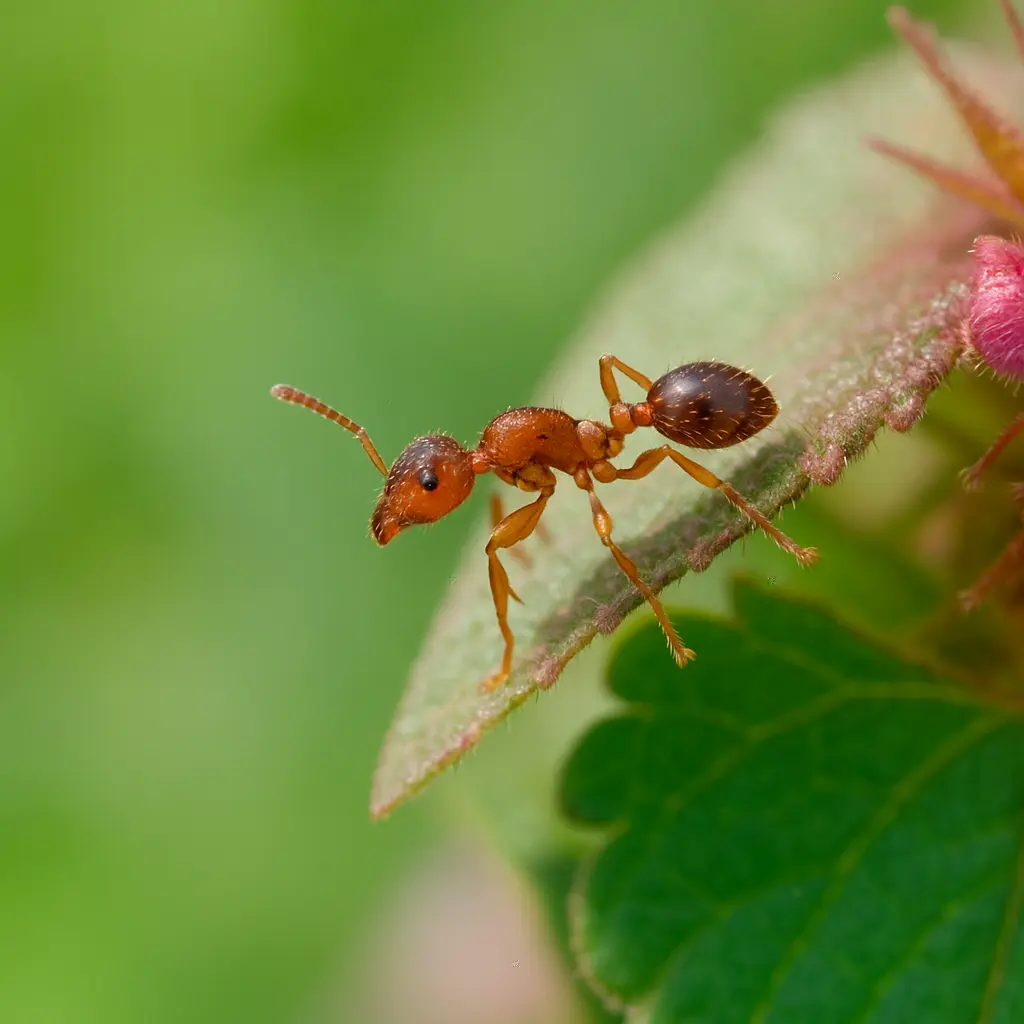
Bug Bite and Pest Control in Boston
Living in Boston and noticing bites on your arms, legs, or pets? Our licensed pest control team inspects, identifies, and treats mosquito, flea, bed bug, and spider infestations quickly and safely.
Get Pest Control Help in BostonBee Stings – Painful but Usually Harmless
Bees are vital pollinators, but their stings are painful reminders that nature can defend itself. In Boston, bee stings often happen during gardening, outdoor dining, or summer play in the yard. Most stings cause localized pain, swelling, and redness that fades within hours.
However, bee stings can be dangerous for people with allergies. An allergic reaction may cause hives, difficulty breathing, or even anaphylaxis. If you suspect a severe allergy, always carry an epinephrine auto-injector and contact a professional team if you discover hives near your home.
"My child was stung while playing barefoot in the yard. The swelling lasted two days, but thankfully it wasn’t an allergic reaction."
Wasp and Hornet Stings – Aggressive Defenders
Unlike bees, wasps and hornets can sting multiple times. Their stings are sharper, more painful, and often more alarming. Nests built in eaves, attics, or sheds in Boston can lead to dozens of stings if disturbed accidentally.
Removing wasp or hornet nests should never be attempted without protection. Professional pest control specialists wear protective gear and use targeted treatments. If you see a growing nest near your home, reach out immediately.

Fire Ant Bites – Burning and Persistent
Fire ants are invasive pests known for their painful, burning bites. In Boston, they build mounds in lawns, parks, and even sidewalks. A single disturbance can trigger hundreds of ants to swarm and attack at once.
Their bites turn into itchy, pus-filled blisters that may last for over a week. Children and pets are especially at risk when playing in infested areas. If you notice fire ant mounds in your yard, don’t ignore them – contact our pest control experts for safe removal.
"I stepped into what looked like a pile of dirt, only to feel dozens of stings on my ankles within seconds. Fire ants are no joke."
Horsefly and Deerfly Bites – Sharp and Bleeding
Horseflies and deerflies are large biting flies found near water or wooded areas. Their bites are painful, often leaving behind bleeding wounds and large red welts. In Boston, they appear most often during outdoor activities near rivers or lakes.
While these bites are not usually dangerous, they can become infected if scratched excessively. Wearing protective clothing and insect repellent helps, but if infestations are heavy, it may require professional outdoor treatment. For recurring problems on your property, schedule a pest inspection.
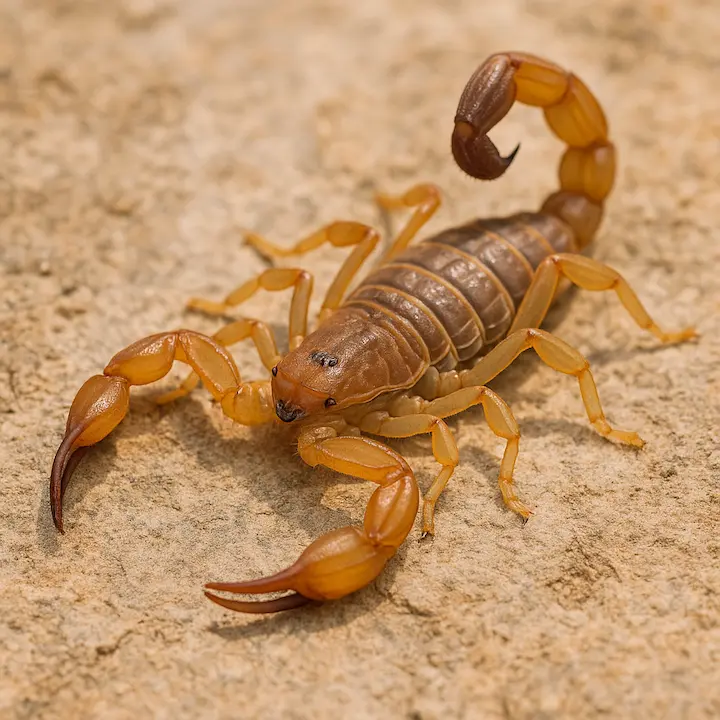
Scorpion Stings – Painful and Sometimes Dangerous
Scorpions are more common in arid regions, but reports of them occasionally appear in Boston homes, especially in basements or storage areas. Their sting causes intense pain, numbness, and sometimes swelling. For most healthy adults, the reaction subsides within hours. However, children and the elderly may experience more severe symptoms.
If you suspect scorpions on your property, especially if stings occur indoors, contact our pest experts. Professional inspections identify entry points and apply treatments to prevent re-infestations.
"I was putting on my shoes in the garage when I felt a sharp sting. A small scorpion had crawled inside overnight."
Spider Bites – Identifying the Dangerous Ones
While most spiders are harmless, certain species pose risks. In Boston, black widow and brown recluse bites, though rare, can cause significant medical emergencies. Symptoms may include muscle cramps, fever, nausea, or skin necrosis.
Most spider bites appear as mild swelling or redness, but if you see spreading tissue damage or severe pain, seek medical attention immediately. Afterwards, schedule an inspection to ensure there isn’t a larger infestation in your home.
"At first I thought it was just a mosquito bite, but after the skin turned dark and painful, the doctor confirmed it was a brown recluse."
Other Ant Bites – Harvester and Carpenter Ants
Beyond fire ants, harvester and carpenter ants also bite. Harvester ant stings are painful and may cause allergic reactions in sensitive individuals. Carpenter ants don’t usually bite, but when they do, it feels like a sharp pinch. More importantly, carpenter ants can damage wooden structures in homes across Boston.
If you notice frequent ant activity in or around your home, contact our ant control specialists.
Tropical Mosquito Species – More Than Just Itchy Bites
In some regions, tropical mosquito species such as Aedes aegypti and Aedes albopictus have been spreading northward, bringing higher risks of viral transmission. Their bites are similar to common mosquitoes but often more aggressive, with swelling lasting longer.
These species breed in small containers of water, making urban neighborhoods in Boston especially vulnerable. For prevention, eliminate even tiny amounts of standing water around your property. If outbreaks persist, book a mosquito treatment service.
"We had no idea the small saucers under our flowerpots were enough for mosquitoes to breed. After treatment and removing the water, the bites stopped."
Africanized Honey Bees – “Killer Bees”
Africanized honey bees, often called “killer bees,” are a hybrid species known for their aggressive swarming behavior. In Boston, encounters are rare but possible, especially near imported plants or shipping routes. Their stings are no more venomous than regular bees, but the danger lies in the number of stings, as colonies defend their hives aggressively.
If you disturb a hive and are chased, run to shelter immediately. Do not try to swat them off – keep moving until you’re safe indoors or in a vehicle. For more information, see the CDC guidance on bee stings .
"I had seen honey bees before, but never this aggressive. Within seconds, dozens were chasing us across the yard."
Tick Bites – Small but High Risk
Ticks are parasitic arachnids that feed on blood. Their bites are painless, but they can transmit serious diseases such as Lyme disease and Rocky Mountain spotted fever. In Boston, wooded areas, tall grasses, and even backyards can harbor ticks.
To reduce risk, wear long clothing when hiking, use tick repellents, and always check your body and pets after spending time outdoors. For detailed health information, visit the CDC Tick Safety Resource .
"After a camping trip, I found a tiny tick on my leg. I never felt the bite, but later developed a rash and fever. The doctor diagnosed Lyme disease."
Sandfly Bites – Tiny Pests with Big Impact
Sandflies are tiny insects found in sandy or marshy environments. Their bites are painful and leave behind red, itchy bumps. More concerning, some sandfly species can transmit leishmaniasis, a parasitic disease affecting humans and animals.
If you notice small, persistent bites after visiting sandy areas in Boston, consider professional yard treatments to reduce populations. Learn more from the World Health Organization (WHO) fact sheet .
"We thought it was just mosquitoes at the beach, but the doctor explained the bites were from sandflies. The itching was worse than anything I’d experienced."
Lice Bites – Itching on the Scalp and Body
Lice are small parasitic insects that infest human hair or clothing. Head lice are common among schoolchildren, while body lice are linked to poor hygiene and crowded living conditions. Their bites cause persistent itching and red spots on the scalp, neck, or body.
Treatment usually involves medicated shampoos, laundering clothes in hot water, and careful combing to remove eggs. While lice do not transmit major diseases in the U.S., constant scratching can lead to infections. For treatment guidelines, see Mayo Clinic – Head Lice Treatment .
"My child came home from school scratching constantly. We discovered head lice, and it took multiple treatments to eliminate them completely."
Fire Ant Bites – Burning Pain That Lasts
Fire ants (Solenopsis invicta) are among the most notorious biting insects in the southern United States, but colonies have been spreading to other states, including parts of Boston. Their aggressive nature makes them especially dangerous – when a mound is disturbed, hundreds of ants can swarm in seconds, stinging repeatedly.
The sting of a fire ant is immediately painful, producing a burning sensation (hence the name “fire”). Within hours, the sting site turns into a red bump with a white pustule at the center. Unlike mosquito bites, which fade in a day or two, fire ant stings may last over a week and can easily become infected if scratched.
"I stepped on what looked like a pile of dirt near my driveway, and suddenly my ankles were covered in stings. The burning pain was intense, and blisters formed by the next day."
Where Fire Ants Build Nests
Fire ants prefer open, sunny areas like lawns, playgrounds, and fields. They build large dome-shaped mounds that may look like harmless dirt piles. In Boston, these mounds often appear along sidewalks, near gardens, or even inside electrical boxes.
Unlike some ant species, fire ants don’t hibernate. Colonies stay active year-round, moving deeper underground during cold months and emerging again in spring and summer.
Medical Risks of Fire Ant Stings
Most stings cause pain, swelling, and pustules, but some individuals experience severe allergic reactions. Symptoms include dizziness, shortness of breath, or widespread hives. In extreme cases, anaphylaxis may occur and require emergency medical care. The CDC resource on fire ants warns that children and the elderly are at higher risk of complications.
Pets are also highly vulnerable. Dogs and cats often disturb ant mounds accidentally, receiving dozens of stings. In agricultural areas near Boston, fire ants have been reported attacking livestock as well.
Why Fire Ants Are Hard to Eliminate
Fire ants are notoriously difficult to control. Colonies may have multiple queens, making them resilient against standard treatments. When disturbed, a colony may “bud,” splitting into multiple smaller colonies that spread across a yard or property.
Over-the-counter sprays and boiling water methods rarely provide permanent relief. In fact, improper treatment can make infestations worse. That’s why homeowners are advised to contact pest control professionals who use targeted baits and growth regulators.
Long-Term Fire Ant Control
Professional treatments involve spreading bait granules that worker ants carry into the colony. The bait contains insect growth regulators that sterilize the queens and disrupt colony development. While slower than contact sprays, this method provides long-term population reduction.
For community-wide infestations in parks or neighborhoods, coordinated treatment is the most effective approach. Local authorities in some states already run fire ant management programs. You can read more in the U.S. Environmental Protection Agency Fire Ant Program .
Black Fly Bites – Tiny but Brutal
Black flies are small, dark insects often found near rivers and streams. Their bites are painful and may cause swelling, itching, and bleeding. Unlike mosquitoes, black flies tear into the skin rather than piercing it, leaving behind open wounds.
In Boston, outbreaks often occur in spring and early summer, making outdoor activities near water unpleasant. Persistent infestations should be reported, and contact our team if the problem continues around your property.
Paper Wasps – Builders Under the Eaves
Paper wasps build umbrella-shaped nests under eaves, porch ceilings, and sheds. Their stings are painful, similar to bees, but they can sting repeatedly. While not as aggressive as hornets, paper wasps defend their nests fiercely.
Attempting to remove a wasp nest alone is risky. Always call pest control to handle the situation with protective gear and proper insecticides.
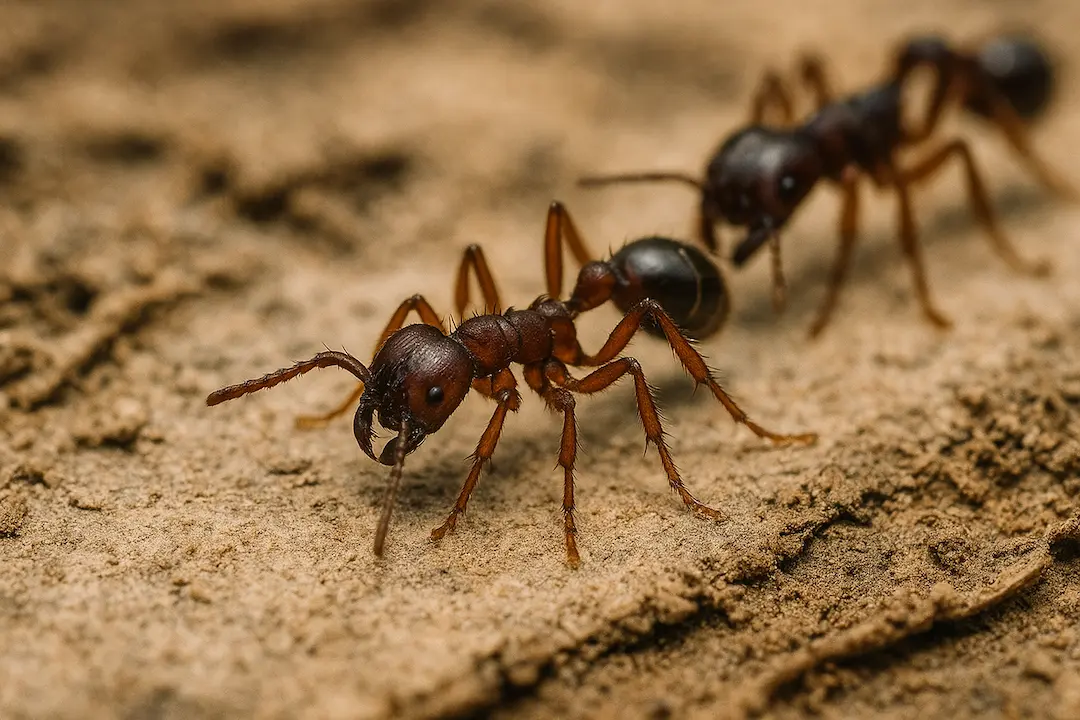
Army Ants – Relentless Swarmers
Army ants are known for their aggressive swarming behavior. While rare in the United States, some reports exist of invasive species spreading northward. They don’t build permanent nests but instead move in large groups, overwhelming anything in their path.
In Boston, residents should be cautious if they see large moving clusters of ants. Bites are painful and can occur dozens of times in seconds. If you notice unusual ant activity, schedule an inspection.
How to Identify Bug Bites in Boston
One of the most common questions residents ask is: “How do I know what kind of bug bit me?” The truth is that mosquito bites, flea bites, bed bug bites, and spider bites can look very similar at first. Knowing the differences is key to treatment and prevention.
- Mosquito bites: small, itchy bumps that appear shortly after being outdoors.
- Bed bug bites: lines or clusters on arms and legs, usually appearing overnight.
- Flea bites: groups of red bumps around ankles or feet, often from pets.
- Spider bites: larger swelling, sometimes painful, occasionally with two puncture marks.
If you’re unsure, contact our pest experts in Boston. A quick inspection often reveals the real cause of the bites.
Are Bug Bites Dangerous?
Most bug bites are uncomfortable but not life-threatening. However, certain insects carry risks:
- Ticks: can transmit Lyme disease and Rocky Mountain spotted fever.
- Mosquitoes: linked to West Nile virus, dengue, and Zika.
- Fire ants: painful stings that may trigger allergic reactions.
- Spiders (brown recluse, black widow): venom can cause serious medical issues.
For more safety information, visit the CDC parasites and insect bites page.
Fire Ant Bites Treatment – What Really Works
Many online “home remedies” for fire ant stings don’t provide lasting relief. The most effective steps include:
- Wash the area with soap and water immediately.
- Apply a cold compress to reduce swelling.
- Use over-the-counter hydrocortisone cream or antihistamines for itching.
- Seek medical care if swelling spreads or you develop difficulty breathing.
Remember – treating the sting is only half the battle. Eliminating the ants from your yard is the only way to stop future stings. Contact our fire ant control team in Boston today.
Why Bug Bites Keep Coming Back in Boston Homes
One mosquito bite outside may not be serious, but if you’re waking up with bites night after night, it usually means there’s an infestation inside the home. Fleas, bed bugs, or hidden spiders are common culprits.
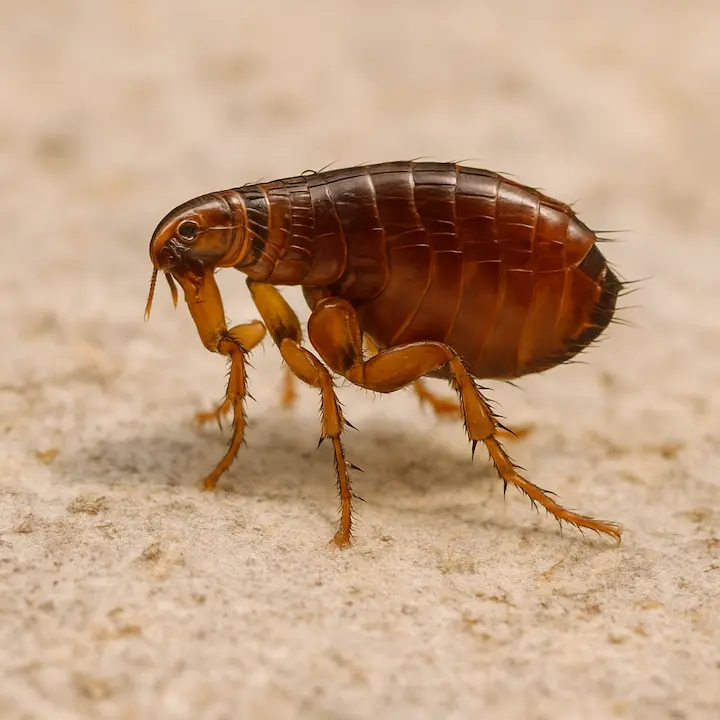
"We kept finding bites on our legs every morning. At first we blamed mosquitoes, but a pest inspection revealed bed bugs in the mattress."
What Helps Itchy Bug Bites
Itchy bug bites are one of the most common summer frustrations in Boston. Whether it’s a mosquito bite after a barbecue, flea bites from pets, or fire ant stings from the yard, the itching can drive anyone crazy. Luckily, there are safe and effective ways to calm the skin and prevent infection.
- Cold compress: Apply ice or a cold pack for 10 minutes to reduce swelling and numb the itch.
- Topical creams: Over-the-counter hydrocortisone cream or calamine lotion ease redness and irritation.
- Antihistamines: Oral allergy medicines like cetirizine or diphenhydramine reduce the histamine reaction that causes itching.
- Avoid scratching: Scratching can break the skin and increase the risk of infection. Keep nails trimmed and clean.
- Natural remedies: Aloe vera gel, oatmeal paste, or baking soda mixed with water can soothe mild itching.
If bites become swollen, painful, or keep appearing every morning, it usually means there’s a pest infestation nearby. Contact our pest control experts in Boston to stop the problem at the source and protect your family.
SEO Tip – Local Connection
People in Boston often search for “bug bite treatment near me” or “pest control for bites in Boston”. That’s why our services and guides are optimized to show up when you search locally.
Instead of relying on temporary fixes, book a local pest control visit. It’s the fastest way to solve the root cause and protect your family.
Other Biting Pests in Boston You Should Know About
- No-see-ums (biting midges): tiny flies that cause itchy bites, especially near water.
- Horseflies: large flies with painful, bleeding bites.
- Kissing bugs: rare but dangerous, capable of transmitting Chagas disease.
- Chiggers: microscopic mites that cause red, itchy welts around the waist or ankles.
Each of these pests requires a different control approach. Don’t waste money guessing – schedule an inspection and let professionals identify the problem correctly.
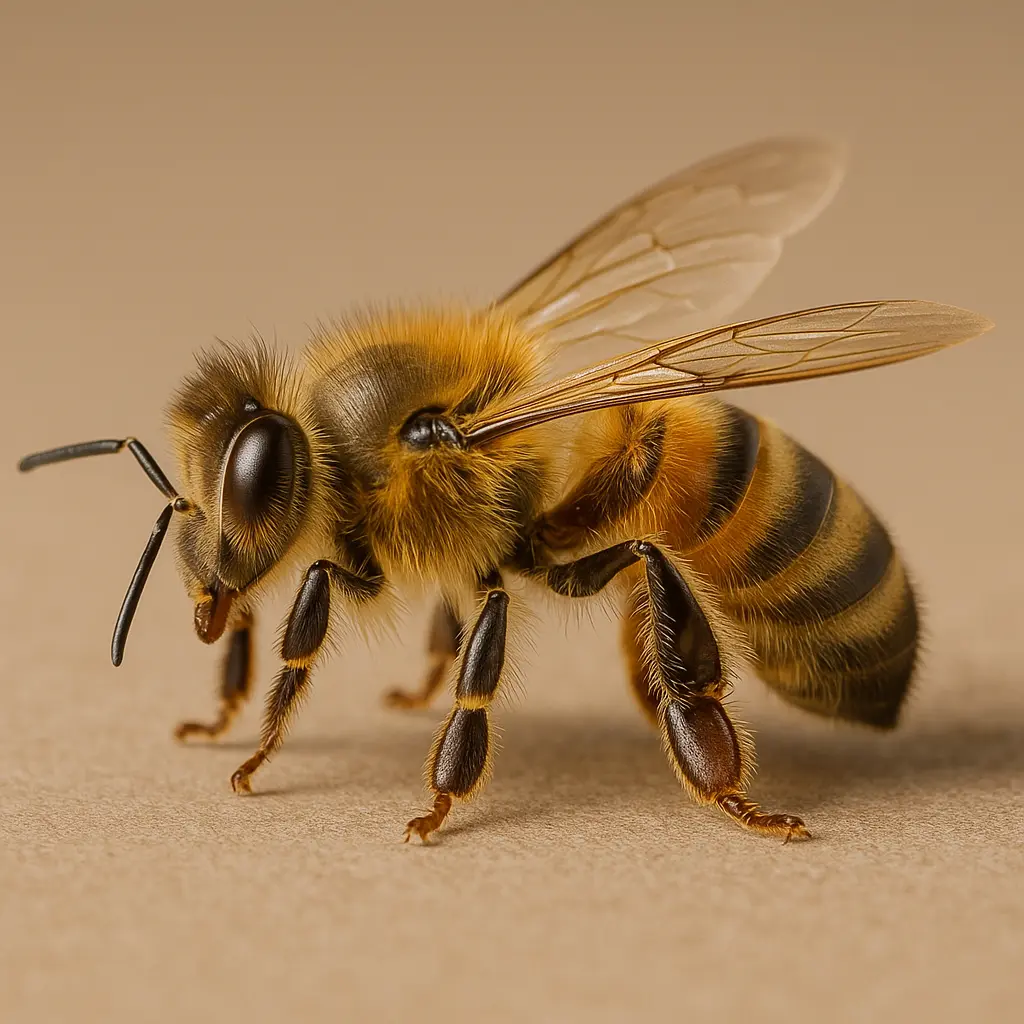
Kissing Bug Bites – What They Look Like
Kissing bugs, sometimes called “assassin bugs” or “cone-nose bugs,” are nocturnal blood-feeding insects most common in the southern United States but increasingly reported in other regions. They earned their nickname because they tend to bite sleeping people on the face, lips, and around the eyes. Their bites often appear as clusters of red welts or swollen patches that itch intensely and may last for several days.
Unlike mosquito bites, which are scattered across arms and legs, kissing bug bites are usually concentrated in one area and occur overnight when the insects are most active. Victims often wake up with multiple bites in a line or group, similar to bed bug activity, but the location on the face is a strong indicator. Some people experience mild irritation, while others develop more significant swelling or allergic reactions. Repeated scratching can also lead to secondary skin infections.
The greatest concern with kissing bug bites is the possibility of Chagas disease, a serious illness caused by the parasite Trypanosoma cruzi. Transmission does not happen through the bite itself, but when the insect defecates near the wound and the parasites enter the skin through rubbing or scratching. According to the U.S. Centers for Disease Control and Prevention (CDC), thousands of people in the Americas are affected each year. While cases in the U.S. remain rare, the risk is real, especially in areas where kissing bugs live in and around homes.
If you notice unexplained red welts on your face after sleeping, or see insects resembling kissing bugs near your property, do not ignore the warning signs. Early action can prevent health risks and stop an infestation from spreading. Contact our pest control experts in Boston for a thorough inspection and safe, targeted treatment to eliminate the source and protect your family.
"I woke up with several red bites near my mouth and cheeks. At first I thought they were mosquito bites, but later learned they were from kissing bugs hiding in a crack near the window."
